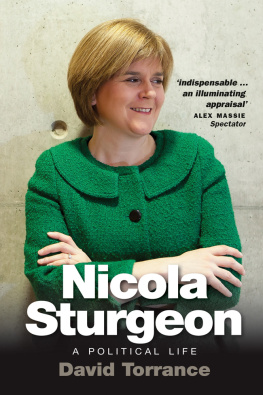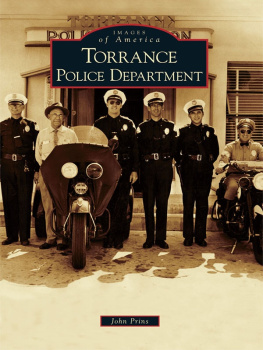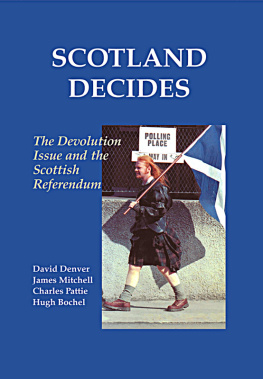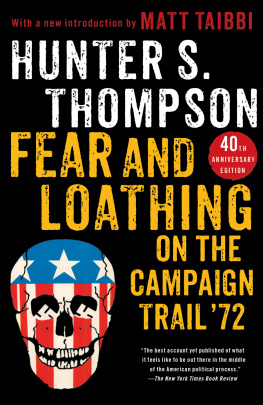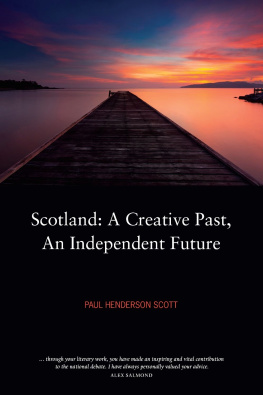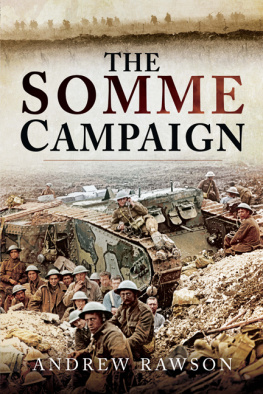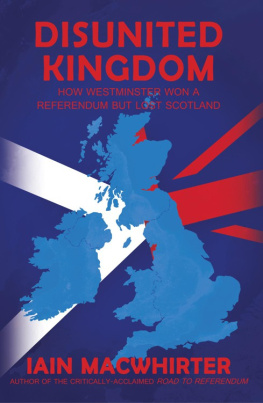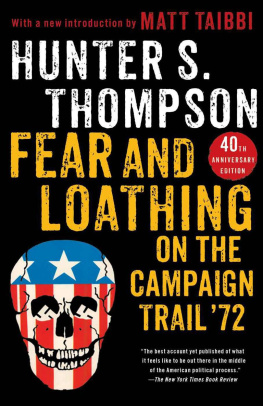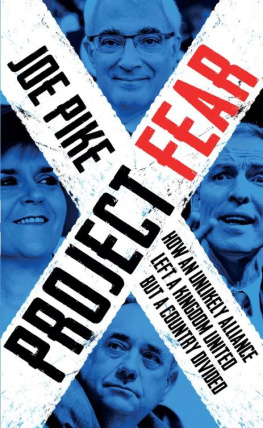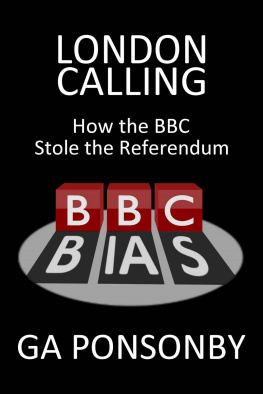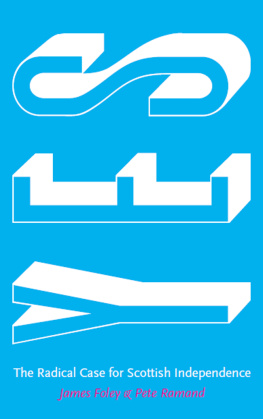DAVID TORRANCE is a freelance writer, journalist and broadcaster who specialises in the politics and history of the long-running debate about Scottish independence. After being educated in Edinburgh, Aberdeen and Cardiff he worked as a newspaper and television reporter before taking a brief career break to dabble in politics at Westminster. For the past seven years he has been a freelance commentator as well as the author or editor of more than ten books about Scottish and UK politics, biography and history. Like all good Scotsmen he has lived in London for long stretches, but is currently based in Edinburgh.
By the same author: The Scottish Secretaries (Birlinn, 2006) George Younger: A Life Well Lived (Birlinn, 2008) We in Scotland: Thatcherism in a Cold Climate (Birlinn, 2009) Noel Skelton and the Property-Owning Democracy (Biteback, 2010) Inside Edinburgh: Discovering the Classic Interiors of Edinburgh (Birlinn, 2010) Salmond: Against the Odds (Birlinn, 2011) David Steel: Rising Hope to Elder Statesman (Biteback, 2012) Whatever Happened to Tory Scotland? (ed.) (Edinburgh University Press, 2012) The Battle for Britain: Scotland and the Independence Referendum (Biteback, 2013) Great Scottish Speeches I (ed.) (Luath Press, 2013) Great Scottish Speeches II (ed.) (Luath Press, 2013) Britain Rebooted: Scotland in a Federal Union (Luath Press, 2014) Scotlands Referendum: A Guide for Voters. With Jamie Maxwell . (Luath Press, 2014)
100 Days of Hope and Fear
How Scotlands Referendum was Lost and Won
DAVID TORRANCE

Luath Press Limited
EDINBURGH
www.luath.co.uk
First published 2014
ISBN: 978-1-910021-31-6
ISBN (EBK): 978-1-910324-37-0
The authors right to be identified as author of this book under the Copyright, Designs and Patents Act 1988 has been asserted.
David Torrance 2014
To the 100 per cent
Contents
The photographs in this book are all the author unless otherwise credited.
Introduction
In a postscript to his 1999 diary of the first Scottish Parliament election campaign Scotland Reclaimed the former Herald journalist Murray Ritchie gazed into his crystal ball: Sometime in the future, it is reasonable to predict, the Holyrood and Westminster Parliaments will be run by opposing political parties, most probably with the SNP governing Scotland. When that day comes the Scottish Parliament will have a critical influence over Scotlands and Britains destiny, and the people who voted for Home Rule will be asked to decide in a referendum whether they want their country to remain an integral part of the United Kingdom or to reclaim its independence.
Given others were busy predicting that devolution would kill Nationalism stone dead, it was a prescient conclusion. Less than eight years after Ritchies diary was published the SNP formed its first minority administration, while just over five years following that election victory a referendum on independence was agreed between the Scottish and UK governments, due to be held on 18 September 2014 .
This, then, is an account of the days (roughly speaking) that separated the beginning of the formal campaigning period and the weekend following the referendum itself. Before embarking on this, I had only ever kept a diary while travelling, so keeping a detailed account of my homegrown activities proved an interesting departure. To give some useful context, throughout the referendum campaign I was based in Edinburgh, having moved back to the city of my birth, upbringing and schooling from London a few weeks before. Not only did this mean I was able to vote, but also Edinburgh was, of course, where all the action was.
When I say Edinburgh I mean, of course, Scotland, for although based in the capital I travelled to other parts of the country as often as I could, usually (but not always) in connection with the campaign. Only occasionally did I return to London although that provided a much underrated perspective on what was happening in Scotland and only a few times did I go abroad, including to the European Parliament in Strasbourg and to cover another independence referendum in Barcelona. Otherwise, for much of this diary I was conscious of living in a Holyrood bubble literally staying a minute or so from the Scottish Parliament and inhabiting, by and large, the area between there, Waverley Station and The Tun, home to BBC Scotland. Later I moved to Newington and, although further away, it felt much the same.
Inevitably, therefore, most of the people who feature in this diary are drawn from that bubble, for which I make no apology: in terms of providing insights and the inside track throughout the long referendum campaign, those involved in either Yes Scotland or Better Together were obviously the best individuals for me to seek out. Given the nature of politics and journalism, many of them were also friends (or in some cases, such as my father, close relatives). And given the often-sensitive nature of what I was told, many individuals are not named.
Diaries are inevitably self-indulgent things, full of I this and I that, but while hopefully giving an insiders perspective of an historic constitutional event, it might also shed some light on the working life of a freelance journalist which, in my humble experience, is much misunderstood, if not actively disparaged. Indeed, being a journalist during the referendum particularly a non-aligned one was frequently an uncomfortable experience. The adage of I disapprove of what you say, but I will defend to the death your right to say it (often misattributed to Voltaire) ceased to apply; any piece of analysis with which a campaigner (usually pro-independence) disagreed was dismissed as biased, while facts often became little more than a matter of opinion.
How was it written? Initially, at least, it was bashed directly into my laptop at the end of each day but over time, and as I got busier, I developed a habit of keeping daily notes and finishing the entries every few days or so. There were, of course, exceptions: I only finished writing the last seven or eight entries more than a week after the big day itself. I was, among other things, exhausted. As were many others, not least those directly involved in either campaign, and especially following a political process that had occupied more than two years of our lives.
Too often historic is a term abused by journalists and politicians, but on occasion it is entirely justified. If a democratic vote that might have ended the -year-old marriage between Scotland and England (not to mention the relatively younger United Kingdom), thereby turning conventional political wisdom on its head, could not be termed historic then it was difficult to think what would.
Indeed, the independence referendum, a wide-ranging national conversation lasting more than two years, generated much hyperbole: things, gushed journalists, would never be the same again (usually they were precisely that), while the status quo was not an option. The debate also had a habit of raising big questions about inequality, political engagement and the balance of power(s) within the UK only to answer them in small, superficial ways; endless discussion about independence (however defined) and that ambiguous term more powers filled the vacuum left by any significant discussion of political ideas .
In terms of the two campaigns, Yes Scotland and Better Together, yet another journalistic clich was invoked, chiefly Mario Cuomos aphorism that one must campaign in poetry but govern in prose. On both sides of the constitutional divide genuine poetry rarely intruded into an often dry, cost-benefit analysis of the pros and cons of independence. Although it was not immediately obvious, meanwhile, the Yes campaign seized control of the narrative early on: having cast the debate in voters minds as a battle between hope and fear, positivity and negativity, it became much easier to delegitimise criticism of independence however compelling as scaremongering or, at the very least, bluff and bluster.
Next page

